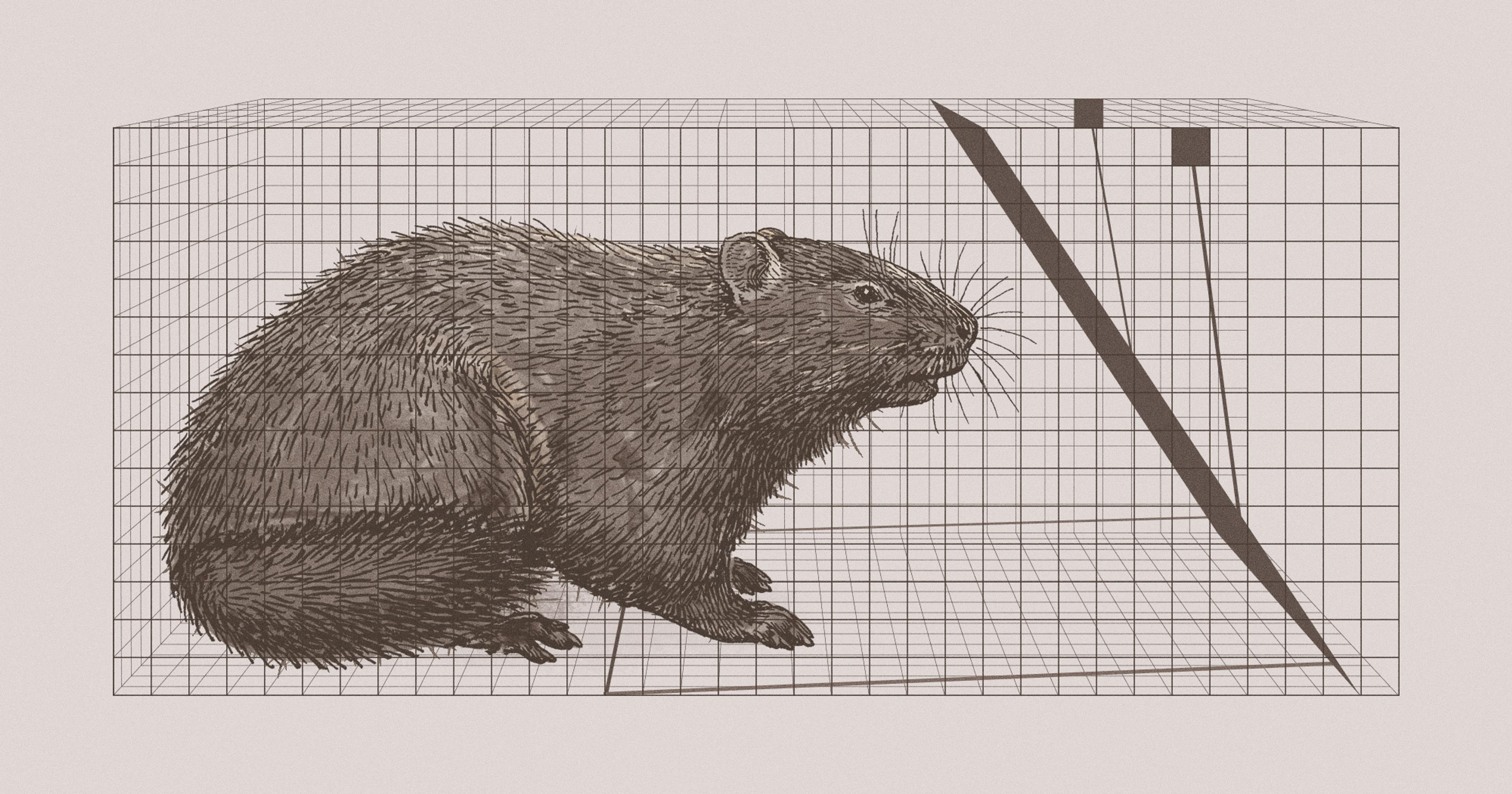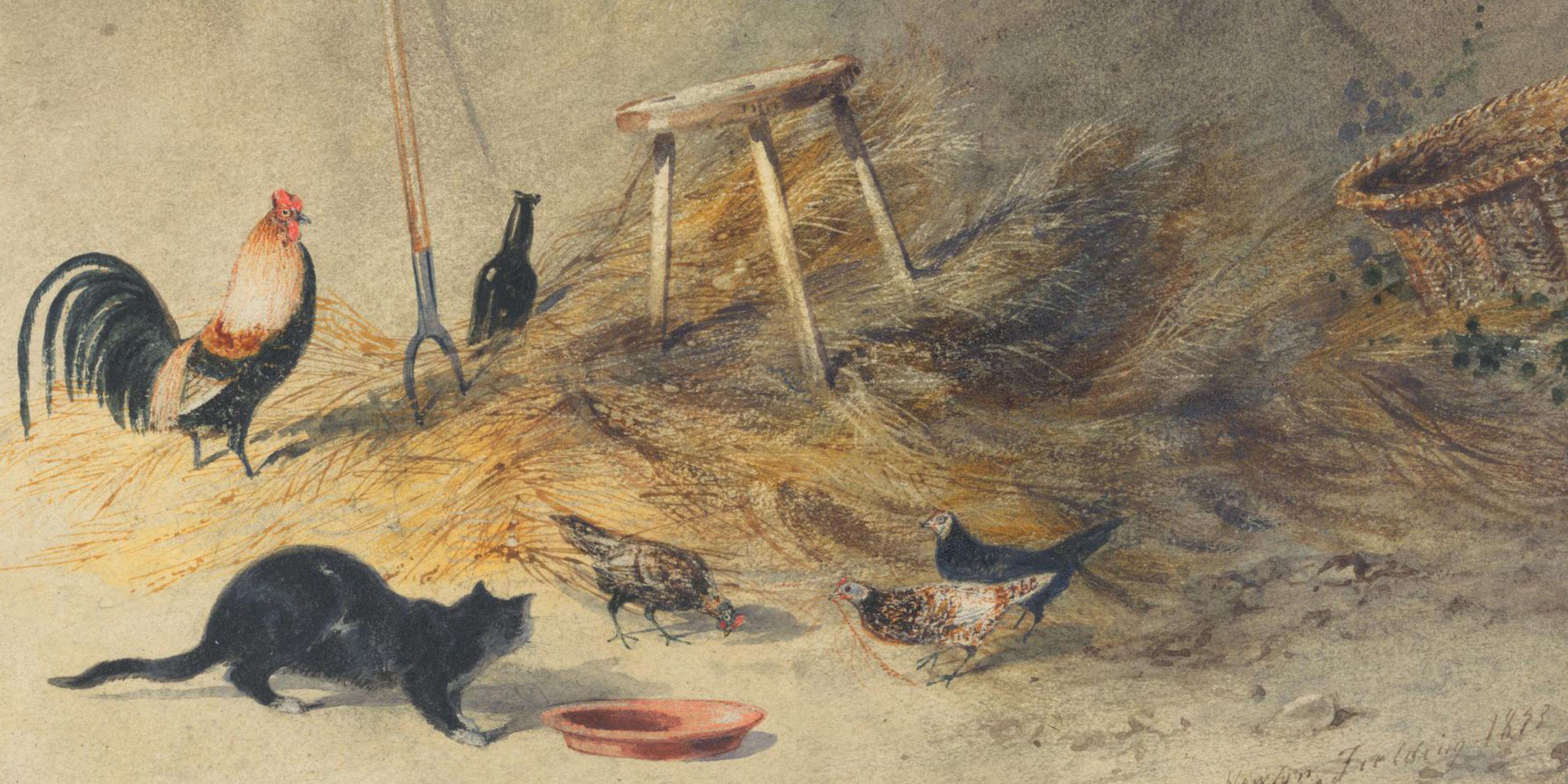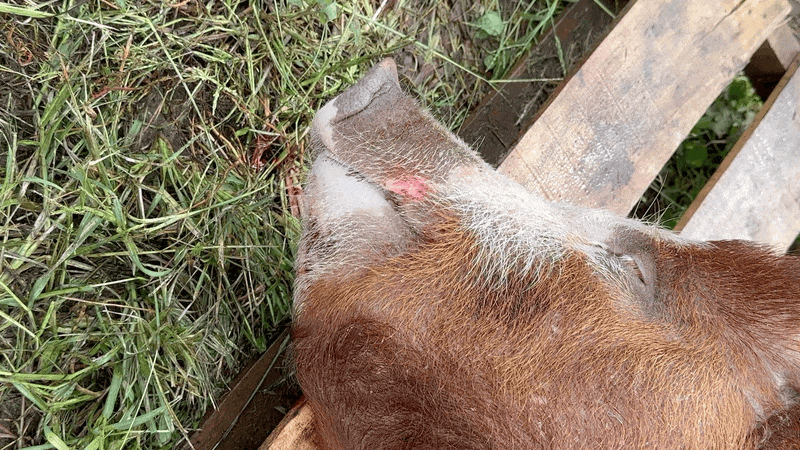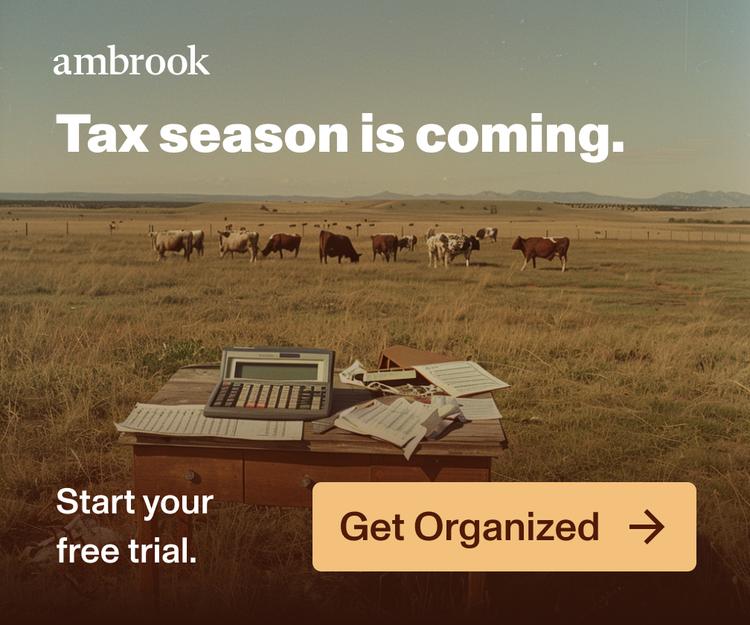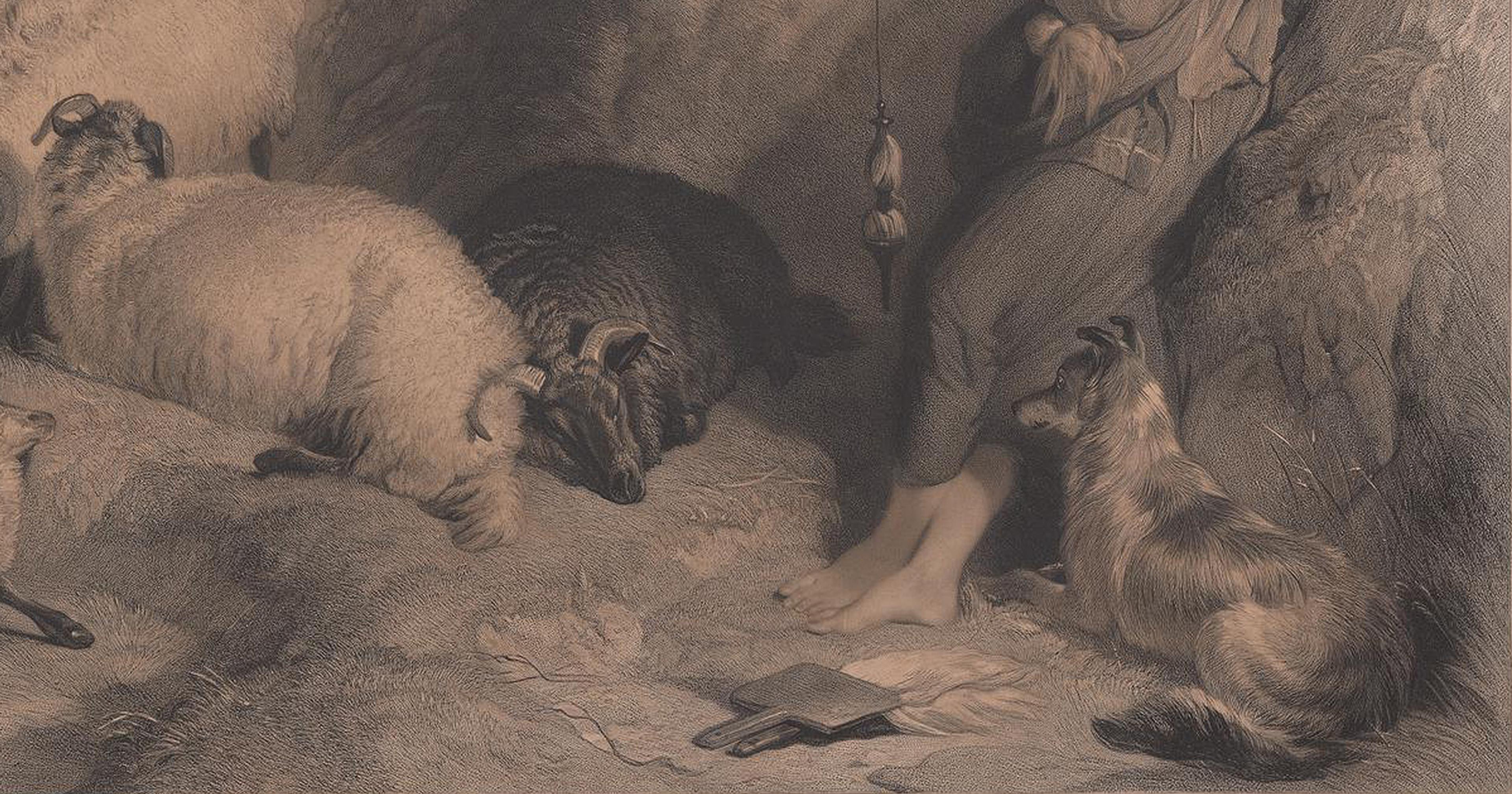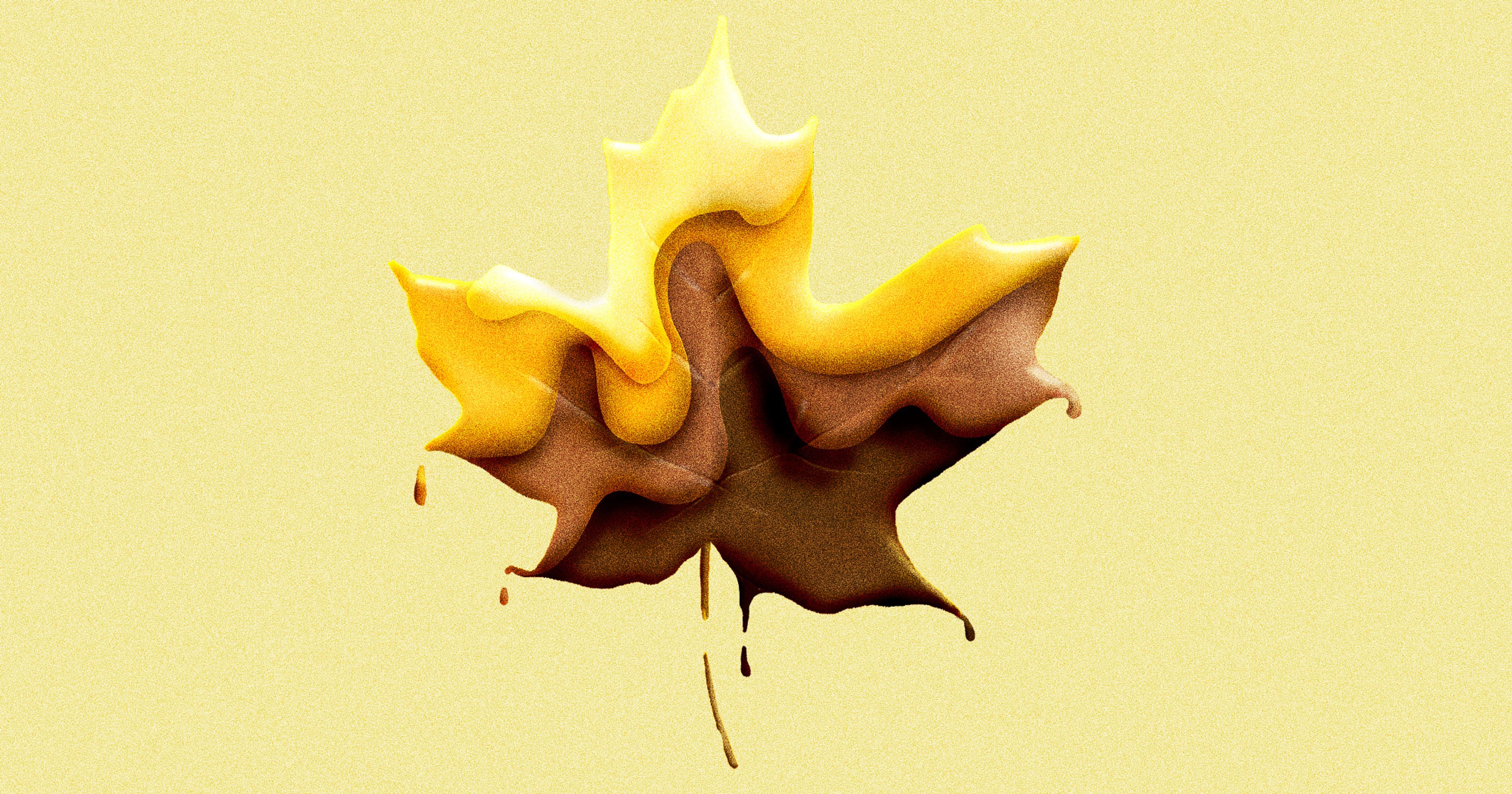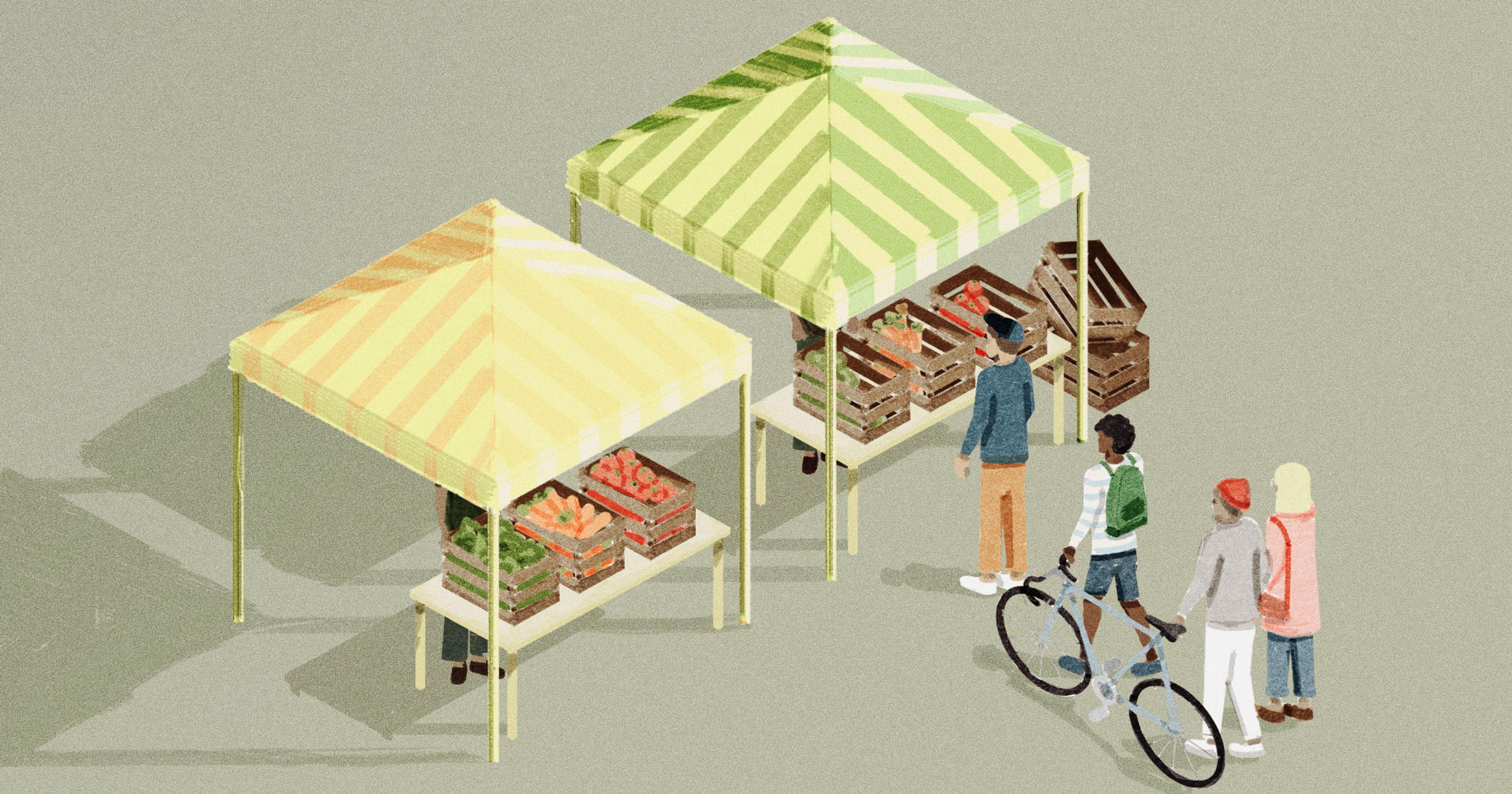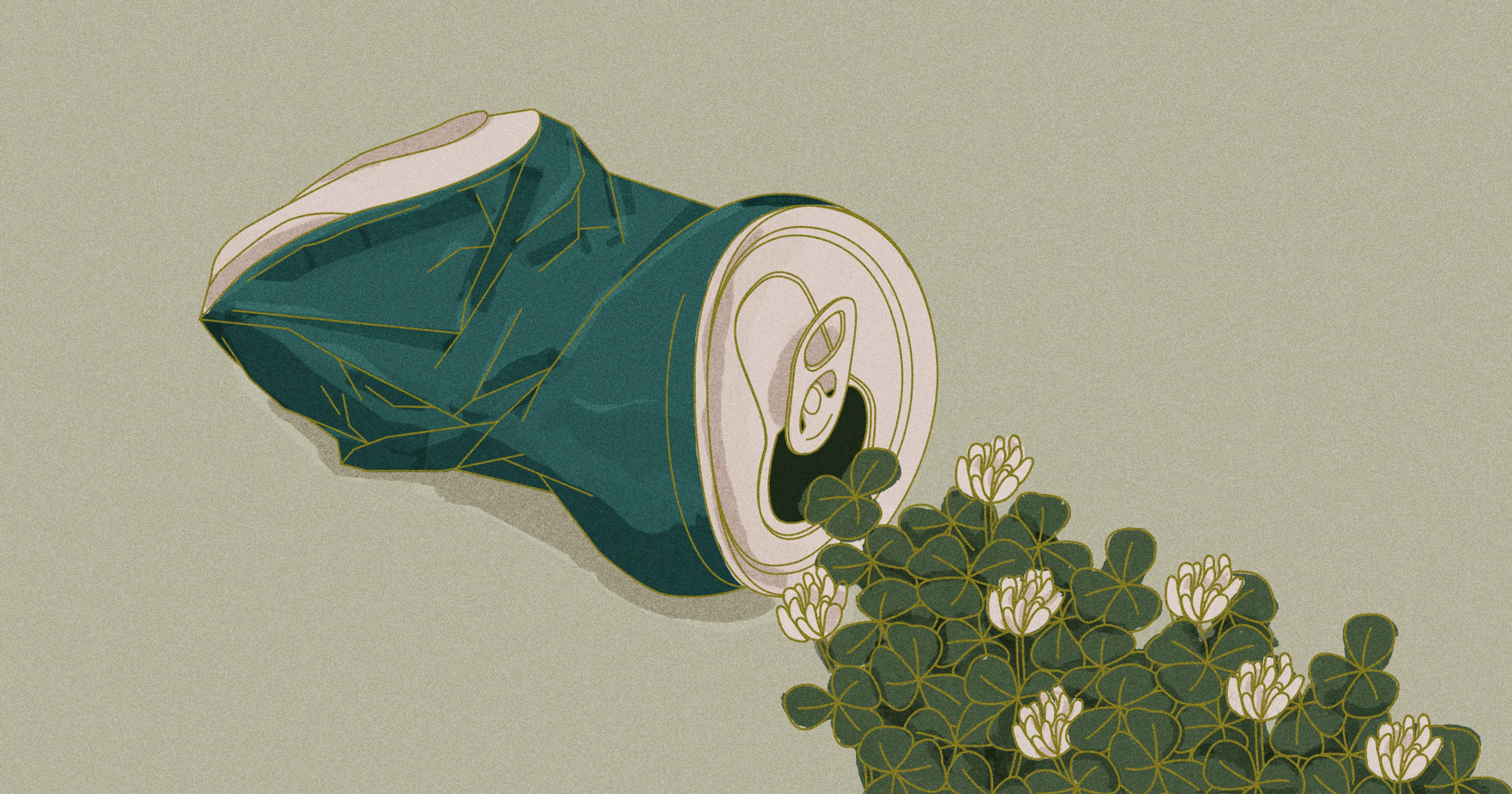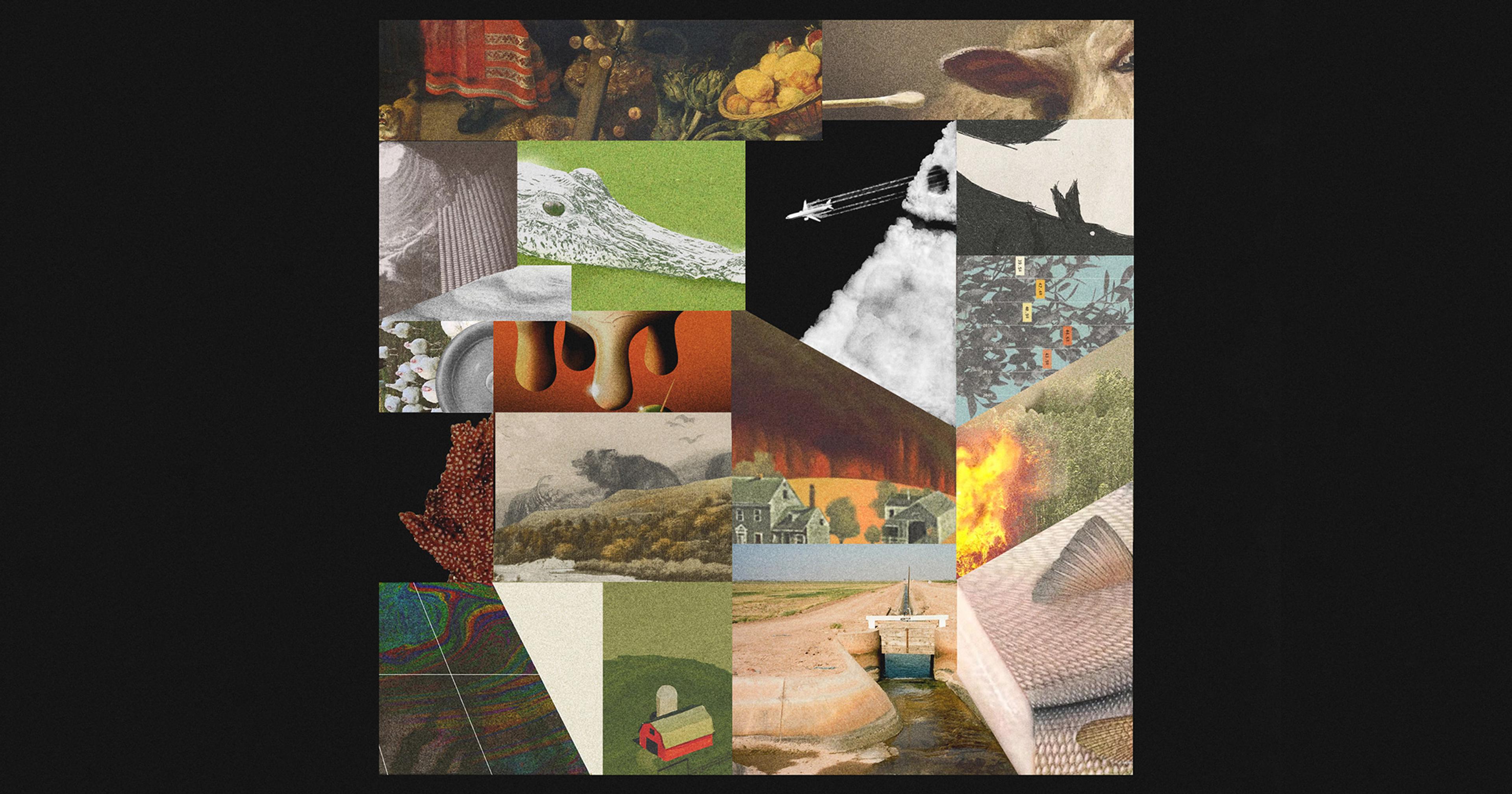Gardening was supposed to be a source of solace and connection with the earth. It brought out my worst territorial instincts.
One might say that weeping on the ground is a dramatic reaction to discovering a few chewed-upon tomatoes. I found them scattered in a haphazard trail originating in the 8x4 raised bed where I’d chosen, in an idealistic commitment to maximizing the usefulness of my tiny plot of land, to attempt to grow vegetables for the fourth summer in a row.
When I discovered the first damaged fruit, abandoned in the soil under its parent plant, a chunk removed to expose its soft seeds and pink innards, I yelled to no one: “GROUNDHOG!” Six more underripe specimens, each tasted and discarded, marked the way to one green tomato rolled dejectedly under a row of hostas — that, for some reason, was the one that broke me.
I am a dramatic person. I am also a vengeful person, something I’ve long suspected, now fully confirmed over the course of a prolonged battle with a six-pound rodent. The act of cultivating food from the earth, I believed, was supposed to be a meditative practice, something to bring me closer to nature and all that is wholesome and good. Instead, it brought out a furious, territorial, even violent part of myself — one that did not want to commune with nature, but control it.
There were two reasons for this, driven by philosophy and fantasy in equal parts. As an environmental journalist, I knew that the easiest way to know the source and footprint of what you eat is to grow it yourself. Beyond that, the act of growing food on one’s own land — however small — felt like an almost biological imperative. In Orwell’s Roses, the writer Rebecca Solnit’s biographical essay collection about the writer George Orwell and his love of gardening, she describes the grander significance of the act of home gardening:
“...[L]et it mean a collaboration with the world of and work of plants, the establishment of tending of a few more carbon-sequestering, oxygen-producing organisms, the desire to be agrarian, settled … To garden is to make whole again what has been shattered: the relationships in which you are both producer and consumer, in which you reap the bounty of the earth directly, in which you understand fully how something came into being.”
After years of living in brick-bound apartments in Seattle, I had purchased a little rowhouse in Pittsburgh, and I was determined to reap the bounty of my 15-foot patch of earth. I would pluck the ingredients for summer salads straight from my backyard, ideally while clad in Americana-chic cutoffs and a wide-brim hat. (Therein, the fantasy.)
The first spring that I spent in that house, I built a raised bed from a cheap Home Depot kit and filled it with soil and compost I made over the winter in an overcrowded rotating bin. I planted seedlings with very little research on what would grow well together in a fairly compact space, and was delighted when about half of them did indeed produce edible things. The next year, I was more intentional about what I planted. And the following season, this year, as though he’d been apprised of my gradually refining efforts, the groundhog appeared.
At first we lived in a state of détente. He had made his home under my neighbor’s porch, and in the mornings and evenings would tentatively emerge from a gap in the fence and sniff around my patch of grass. I would run to the kitchen window at every rustle of leaves, carefully observing his patterns of movement; I’d take photos of him under cover of my rusting fire pit, examining his black eyes closely to determine if he was watching me too. Eventually I began to notice more advanced incursions: an erosion of zucchini leaves, a chewed-up delicata squash, the disappearance of lettuces. And then within the space of a few days, he ate every single tomato within reach.
You are growing food for your family, and the groundhog constitutes a threat to that practice. You have to get rid of it. Protect what you’ve grown.
I felt, genuinely, like I had been robbed — a powerlessness mixed with violation and indignant rage. How dare he. (In my mind, I always assumed that the groundhog was male.) I began to research my options: capture and euthanization, which felt too brutal and also cost hundreds of dollars; poisoning his home, which I couldn’t suggest to my neighbors for fear of sounding like a murderous psychopath; or relocation, which an animal rescue employee told me would likely result in death by starvation in an unfamiliar environment.
In a desperate quest for advice from those more experienced than me, I turned to friends who had devoted years and years to gardening.
Marie (not her real name!) is an angel on Earth, an exceptionally kind, generous, and thoughtful person, who recently bought a patch of rural land on which to build a homestead. On an overcast August day at the public pool, we stood side-by-side as she dipped her nine-month-old baby in and out of the water, squealing. I asked what she would do, and Marie responded with surprisingly merciless counsel. You are growing food for your family, she explained emphatically, and the groundhog constitutes a threat to that practice. You have to get rid of it. Protect what you’ve grown.
Alice (also not her name), meanwhile, gets more joy and fulfillment out of growing produce in her community garden plot than anyone I know. She is also a committed vegetarian, which means she is probably a better person than me. And sure enough, as a Bonafide Good Person, she counseled patience and empathy: As humans, we’ve taken so much from the groundhog. Why not share what we have in return?
Her gentle suggestion reminded me of an anecdote from Wendell Berry that I read in a profile in The New Yorker. The author had asked Berry if his hallowed cabin in eastern Kentucky had ever suffered any intruders:
“The place was so inviting, I wondered if anyone had ever broken in—seeking, perhaps, a little food and a furtive night’s rest. “Yes, once,” Berry said. He was pretty sure he knew the culprit. “Someone took out a few panes and tried to get into my safe. I wrote him a note—‘Dear Thief, if you’re in trouble, don’t tear this place up. Come to the house, and I’ll give you what you need.’”
I was paralyzed by indecision and guilt and a futile desire to be a person that could peacefully accept an intruder who, all things considered, was not a threat to my well-being.
Two indisputably compassionate and wise people whom I trusted had provided polar opposite approaches to my dilemma, which made me feel only more insane and hesitant to act.
I was paralyzed by indecision and guilt and a futile desire to be a person that could peacefully accept an intruder who, all things considered, was not a threat to my well-being. I did not want to be responsible for the death of a living being. Meanwhile, the groundhog continued to feast on an endless tomato buffet.
I tried other methods of protection. I sprayed organic animal repellent, which did absolutely nothing. I installed sonar devices that were both ineffective and maddening, because I could hear them more clearly than seemingly any other animal. I put up a fence, and within a few days the groundhog learned to climb right over it. I decided to trap him.
For two days and two nights he eluded the “humane” metal trap that I baited with corn and watermelon and the tomatoes he’d sampled. On the third day, I heard a rustle in the vegetable bed from my office. I ran outside to find him cowering in its corner behind the eggplant and on top of the mint, frozen completely still by my furious presence. I could not tell, from the angle of his head, if he was looking at me. I felt like a monster, sickened by my role as a predator, shaky with adrenaline at the prospect of finally defeating my rival. With one hand I lowered the trap, sitting undisturbed nearby, into the raised bed, and with the other used a large shovel to usher my nemesis into it, as it slammed definitively shut.
My boyfriend offered to come home from work to help me move the groundhog, but I declined. I knew this was a task I had to undertake alone, without another person’s love or comfort to soften its gravity.
I laid out some flattened cardboard boxes in the trunk of my car, because groundhogs are known to relieve themselves in states of fear. I had no clear idea of where to bring him; I once went on a date with a Ukrainian doctor who advised me that if you really wanted to ensure that a groundhog would not return to your home, you had to bring him across a body of water. He was very tall, so I trusted his authority.
And so we crossed the bridge and drove through the northern outskirts of the city for an hour, ruling out one potential new domicile after another: too close to people’s homes, too close to a railroad or a busy street, too depressing.
I knew this was a task I had to undertake alone, without another person’s love or comfort to soften its gravity.
The greater Pittsburgh area is riddled with patches of thick woods, one of which I hoped would be an appropriate and abundant home for a groundhog. I finally pulled over into an industrial park on the edge of one such small forest. When I set the cage on the ground and opened it, he clung to its bars and refused to leave, which absolutely broke my heart and drove me to tears.
And then suddenly, he tore off into the trees as though I’d kicked him. (I did not.) I convinced myself for a moment that the animal rescue employee would be wrong, that this groundhog was a survivor, and would feast and flourish in his new habitat.
I returned home spent, and disgraced by the sense of relief I felt when I surveyed my little 8x4 patch and found no new tomatoes chewed on the ground. It was relief bought by violence, by the expulsion of a member of my ecosystem.
Solnit describes how gardening, for writers, is a way to escape the intangible, abstract realm of our own minds and make contact with the stabilizing force of earth. She frames it as a source of peace, a practice of sanity. But I have found myself unable to grow food without confronting greed — both in myself and perceived from an animal simply trying to feed himself in an environment in which green things and fresh vegetables are not particularly abundant.
There’s not much solace in that. But there is, perhaps, a step further down the path of self-awareness; a recognition of one’s own flaws, and how they shape how we behave in the world. And shouldn’t that be any writer’s ultimate goal?

